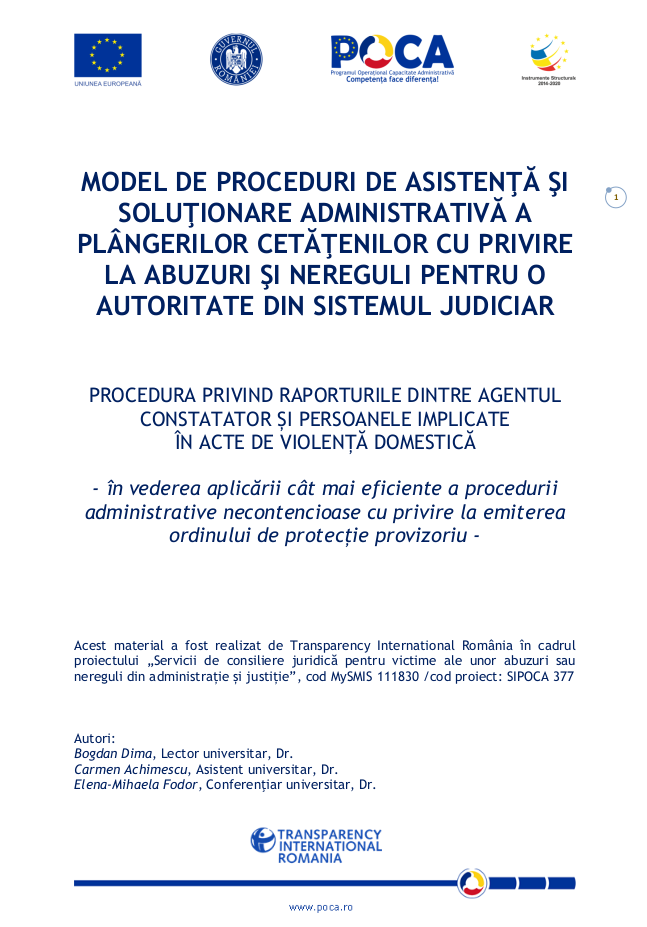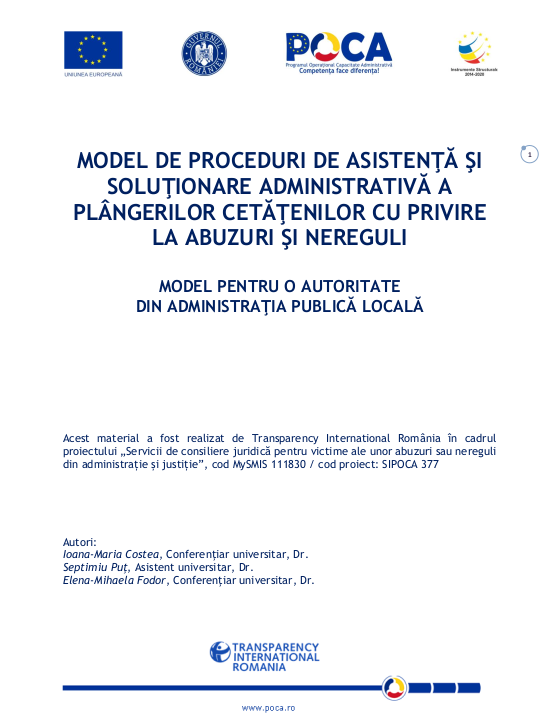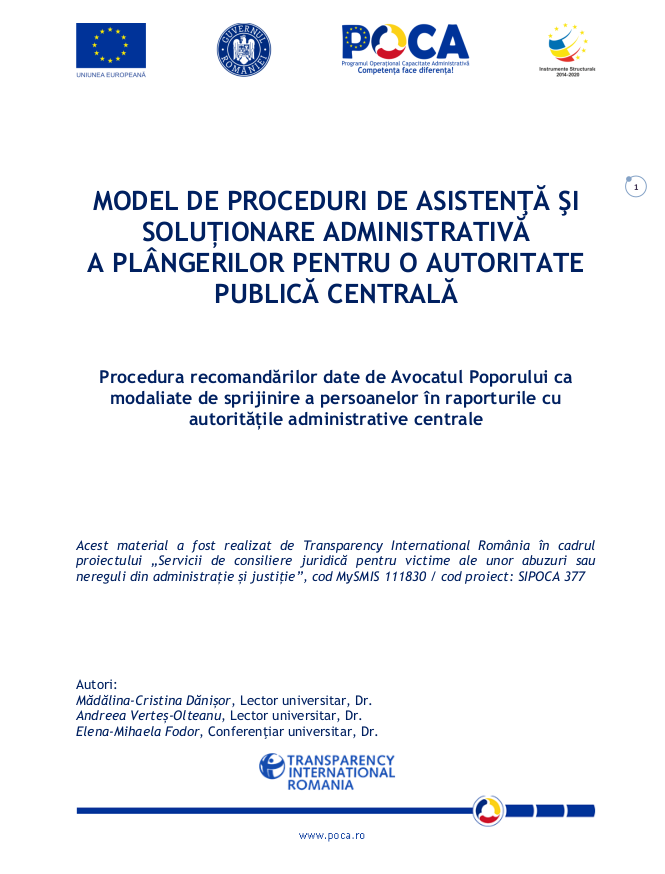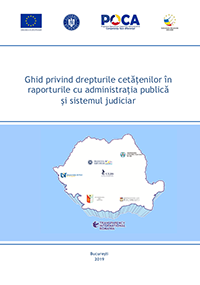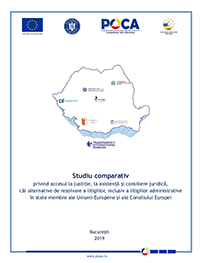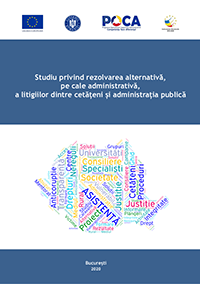Transparency International Romania Studies
The procedure is intended to be a model procedure for assisting and administratively resolving citizens' complaints about abuse and irregularities for judicial authority.
This model aims to provide a summary of the general procedural rules related to the solution of complaints, as well as examples of good practice. At the same time, the model also provides a summary of regulations in the main areas of competence of local government authorities, with comments and explanations. Specific examples of good practice for preventing the violation of individuals' rights or resolving their complaints are also presented.
In the elaboration of the procedure, the Ombudsman Institution was chosen as a model of analysis, given the fact that it has a double perspective. The Ombudsman is a central public institution that generally seeks the correct implementation of legislation by public administration authorities concerning individuals. To fulfil its attributions, it carries out a series of procedures that are described by the legislation in force and must be used in full according to the purpose considered by the legislator.
• General context on respect for fundamental rights and access to justice • Public legal aid • Other forms of legal assistance or advice provided by the state for vulnerable persons • Forms of legal assistance or advice provided by local public authorities for vulnerable persons • Forms of assistance or legal advice provided by private organizations for vulnerable people • Access to justice and alternative means of resolving conflicts • The main alternative ways of resolving disputes: The actual legislative framework • Main ways of resolving administrative disputes.
Complaints and appeals made by citizens
Legal analysis of doctrinal legislation
Citizens' relationship with local public administration institutions and with the decentralized services of the central public administration
The right of the person injured by a public authority
Law enshrined in the Romanian Constitution and special laws
Analysis of case law on complaints and mandatory procedures for filing a request in administrative litigation • Hindrance of access to administrative litigation courts
Legislative issues related to the hindrance of access to administrative litigation courts: mandatory prior administrative complaint (pardon); stamp duties
Analysis of the jurisprudence of the European Court of Human Rights (ECHR) and the Constitutional Court of Romania on access to justice in Romania.

